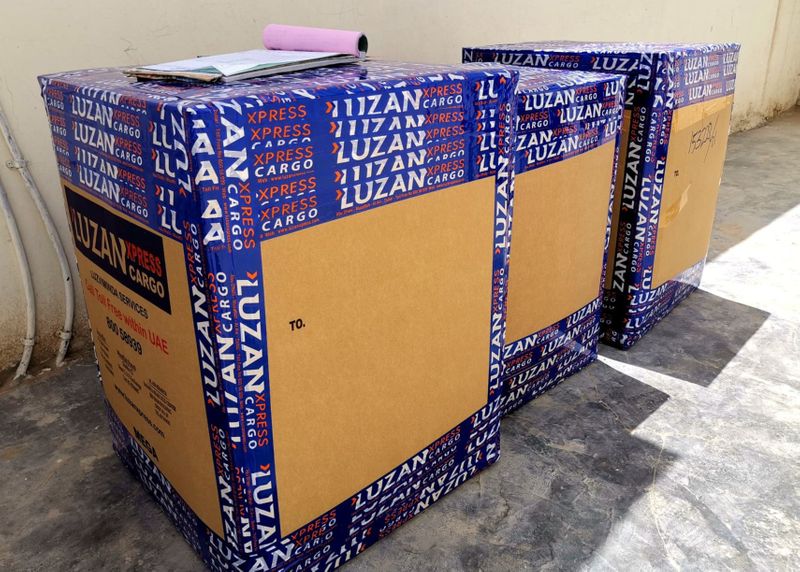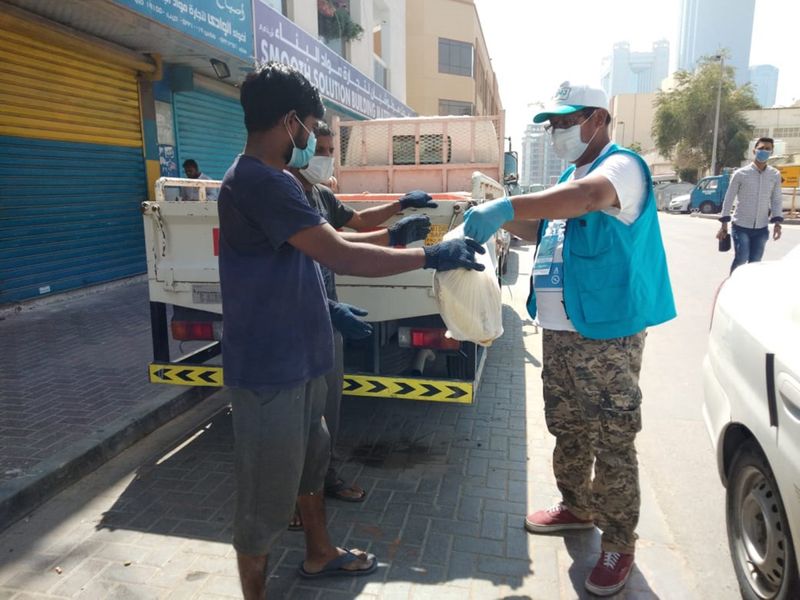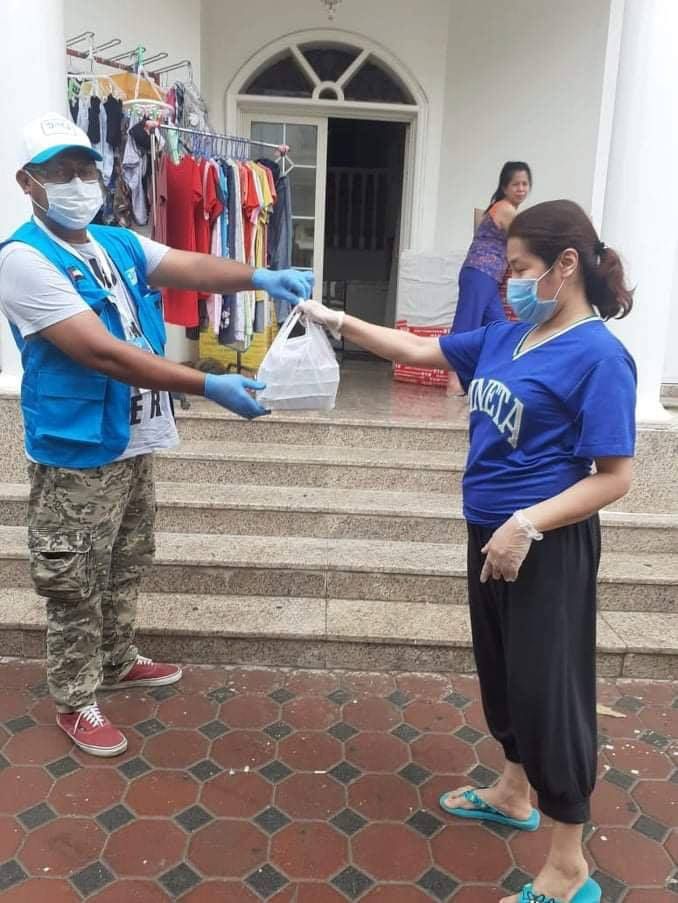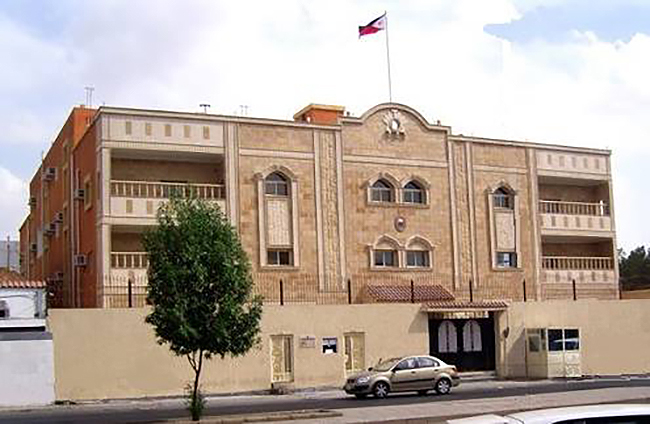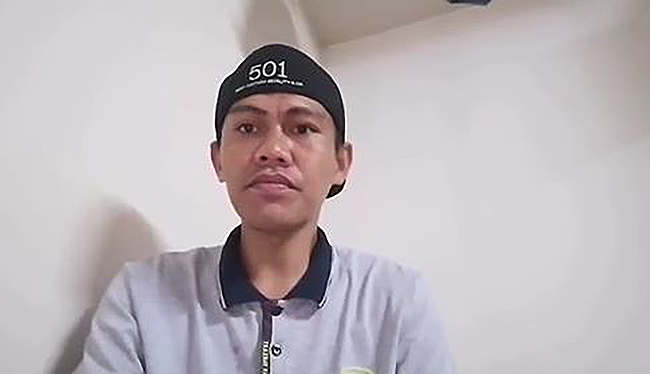Filipino victim at Abu Dhabi gas explosion was on his way to a medical check
Clark Gasis’ wife Elna says he was a loving husband and a doting father
By Angel L. Tesorero
ABU DHABI, United Arab Emirates: One of the two Filipinos who died following a gas explosion at an Abu Dhabi restaurant on Monday was on his way for a medical check ahead of his visa renewal, a family said.
Elna Villason Gasis, 32, wife of the deceased Clark Gasis, 38, said: “My husband seldom left the house as he was working from home. On that day (August 31), he dropped me off to work at 8am. Then he went to his office to get some papers and proceeded for his medical check-up.”
“At around 10.30 am, our office chat group was abuzz with news of the restaurant blast. I immediately messaged my husband because we used to live near the restaurant – a family favorite – along Rashid Bin Saeed Street. When I did not get any reply, I decided to call him but his phone was off. I called him four more times but his phone was not ringing. At 1pm, during lunch break, I decided to go to the clinic to check if my husband was still there. I had no cash with me, so I borrowed Dh50 from a friend for a taxi. I was very anxious and my fears were growing.”
Elna said she called her husband’s office but a workmate told her Clark had not returned. She said she then went to the restaurant area and from afar, could see her husband’s car.

“I found a way to get nearer and saw the car was empty. There were only papers, some bread and a half-empty water bottle,” she recalled.
She said her worst fears came true. In the evening, her friends broke the news to her.
“My friends prepared me dinner as I hadn’t eaten the whole day. Gently, they broke to me the heart-breaking news – my husband was one of the confirmed casualties. The following day, I also got a call from the Philippine Embassy. They assured me that they will provide all necessary assistance,” Elna added.
Loving husband, doting father
Elna said she still could not believe his husband is gone.
She described Clark as a “very loving husband and doting father”.
“Very kind, patient, hardworking, considerate and thoughtful – that was my husband,” Elna said. “Even if he was busy working, he would find time to cook and do other household chores. And after a day’s work, he would spend time with our kids – aged five (girl) and four (boy) – and do Zumba. He was also very focused on our kids’ online classes,” she said.

“He was just caught in the wrong place at the wrong time,” she continued.
Elna described Clark as her best friend and confidante. They came from the same province of Surigao del Sur in southern Philippines. They became friends in 2008.
In 2013, Clark decided to come to the UAE to find work and Elna followed afterwards. They got married in 2014 and soon had two kids who were born and raised in the UAE.
Clark worked as an Autocad draftsman while Elna has been employed as an office staff at a vehicle insurance company.
The couple just celebrated their son’s fourth birthday on August 29.
Bleak future
With two young kids, Elna, who is under her husband’s visa, said “the future suddenly looks bleak”.
“My husband always had a plan. We had started building our family house in Surigao and I don’t know how it will be finished, now that’s he’s gone,” Elna shared. “My two young kids still can’t fully absorb what happened to their father. My daughter, who has seen me crying these past two days, tells me: ‘Don’t worry, Ma. Just go to the hospital and hug Dad’.”
Despite the tragedy, Elna said she is mustering enough courage for the sake of her two kids.
“My husband’s death was tragic, but I would rather choose to celebrate his life,” she said. “But I still don’t know how I will be able to raise my kids alone. I need all the help I can get to ensure my kids will have a good education,” she added.
Elna said the immediate task before her was to take her husband’s remains to the Philippines. #
= = = = =
This report is original to Gulf News.






